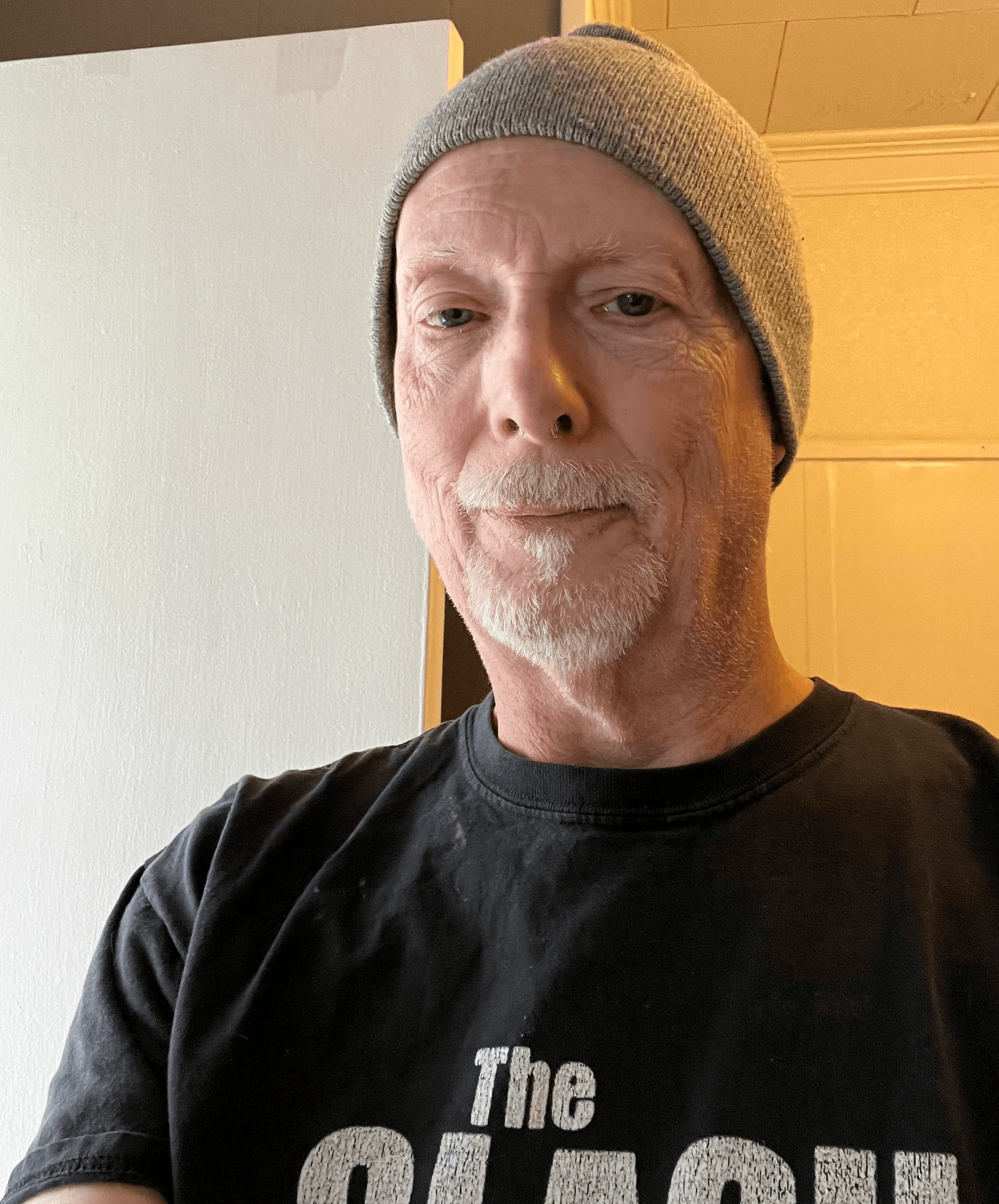We caught up with the brilliant and insightful Alex Clark a few weeks ago and have shared our conversation below.
Alex, thanks for joining us, excited to have you contributing your stories and insights. We’d love to hear about when you first realized that you wanted to pursue a creative path professionally.
I grew up in a studio. My father, James Clark, was an Abstract Expressionist painter in NYC in the late ‘40’s/50’s. He had a studio in Greenwich Village; I used to draw while he worked. It looked like a great job- no boss, breaks to Needix for coffee- only later I realized the struggle that was necessary.. There were art books there, also illustrated adventure classics illustrated by Howard Pyle and N.C.Wyeth, which I loved. He quizzed me with art history flash cards he made, and gave me critiques on my drawings.
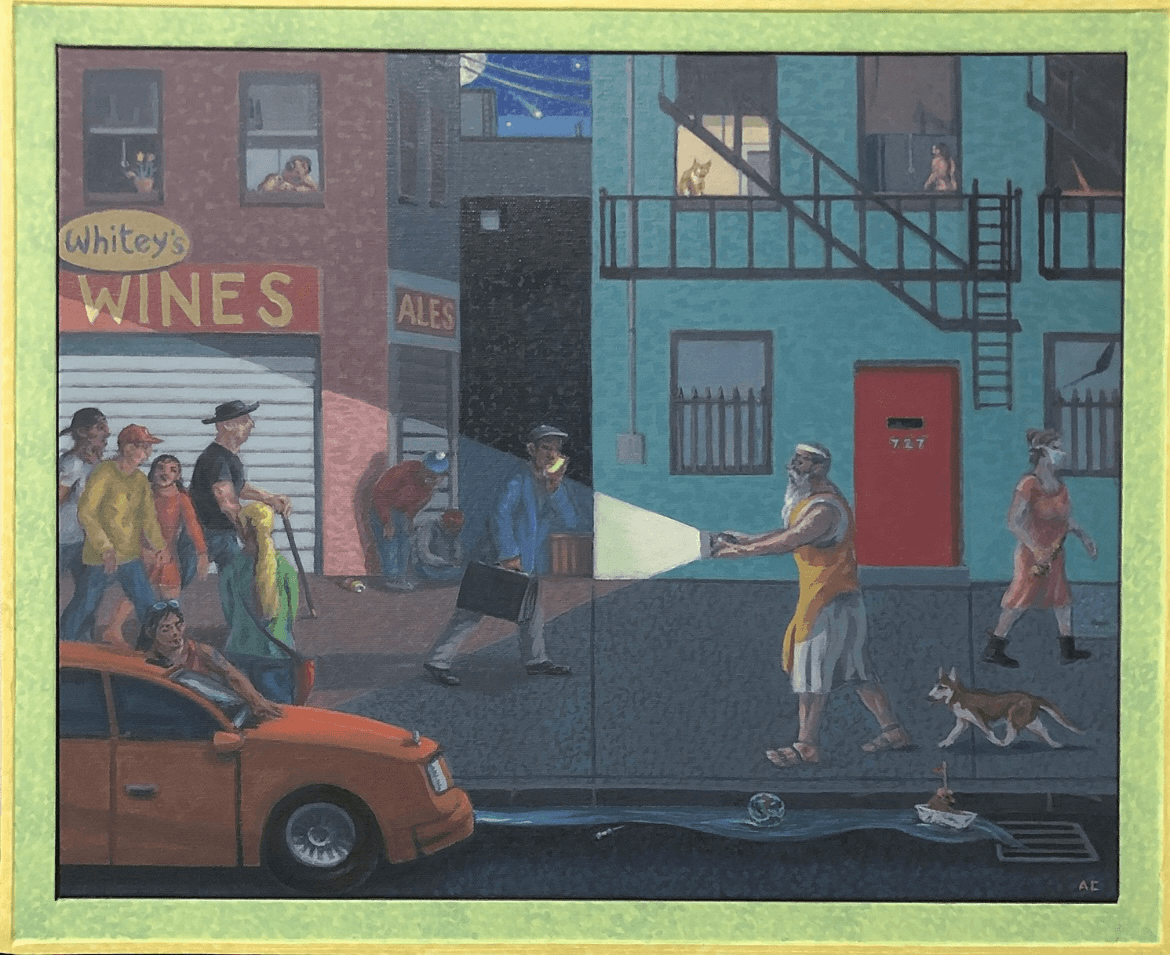
Alex, before we move on to more of these sorts of questions, can you take some time to bring our readers up to speed on you and what you do?
I’m a narrative painter. What used to be called History Painting. Very few ply this practice any more. Why? Because it’s very difficult to do well. It’s easy to fall into cliches and charicature. Easy to appear as if you have all the answers to the world’s problems. I generally paint in oil on canvas, rarely on wood panel, and sometimes use acrylics for small pieces and commissions. My main influences include Degas, George Grosz, Leon Golub, Jack Levine, Baron Gros, Edward Gorey, and many more. Despite being without a gallery in recent years, I sell most of what I create.
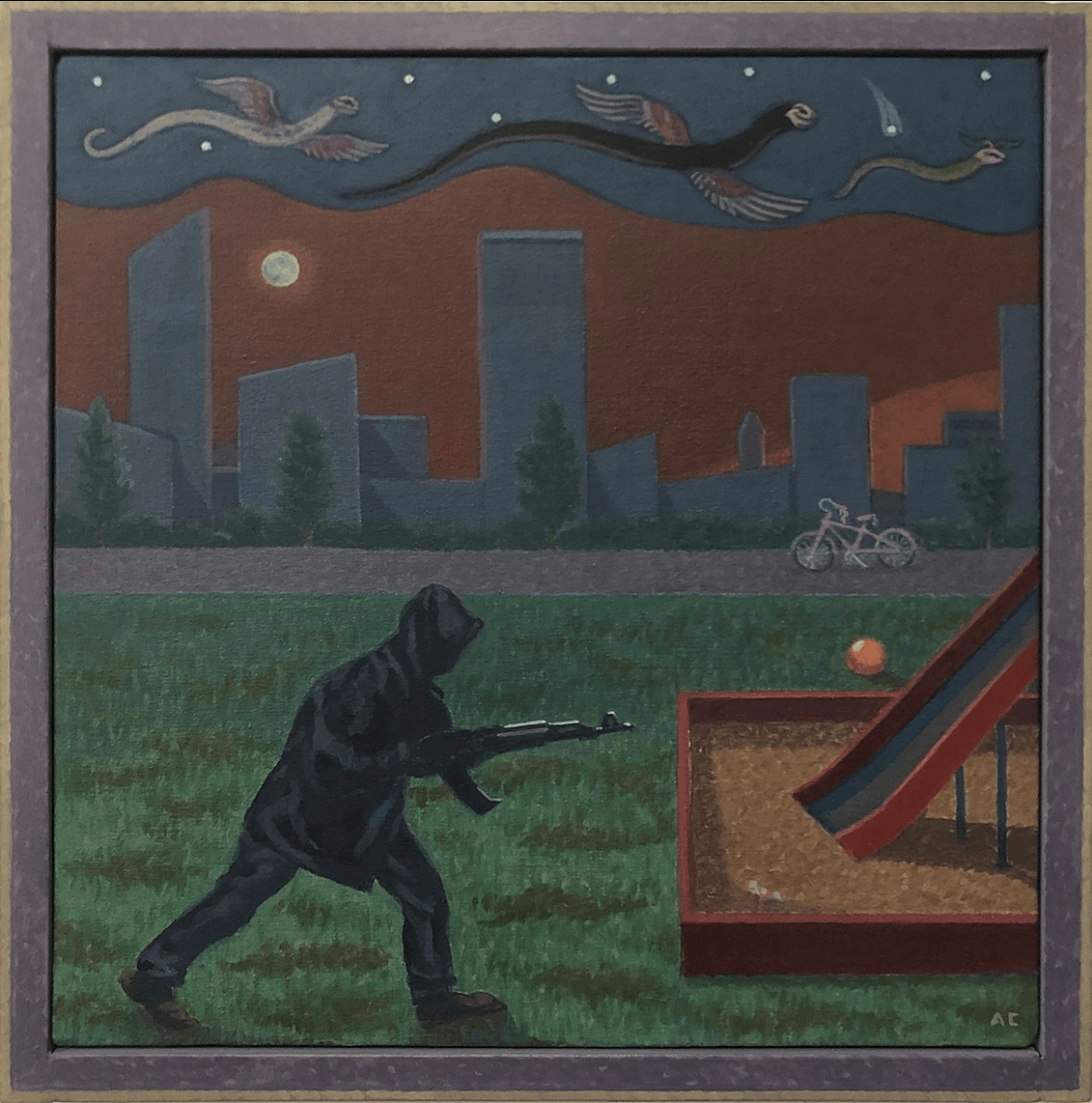
In your view, what can society to do to best support artists, creatives and a thriving creative ecosystem?
I believe cities should provide affordable housing for poor citizens, on a scale generally not available now. I believe low-cost studio space should be a part of those plans. Galleries, museums, and other showing venues should be partially supported by cities, which profit by a rich cultural urban life. Many European cities do this today.
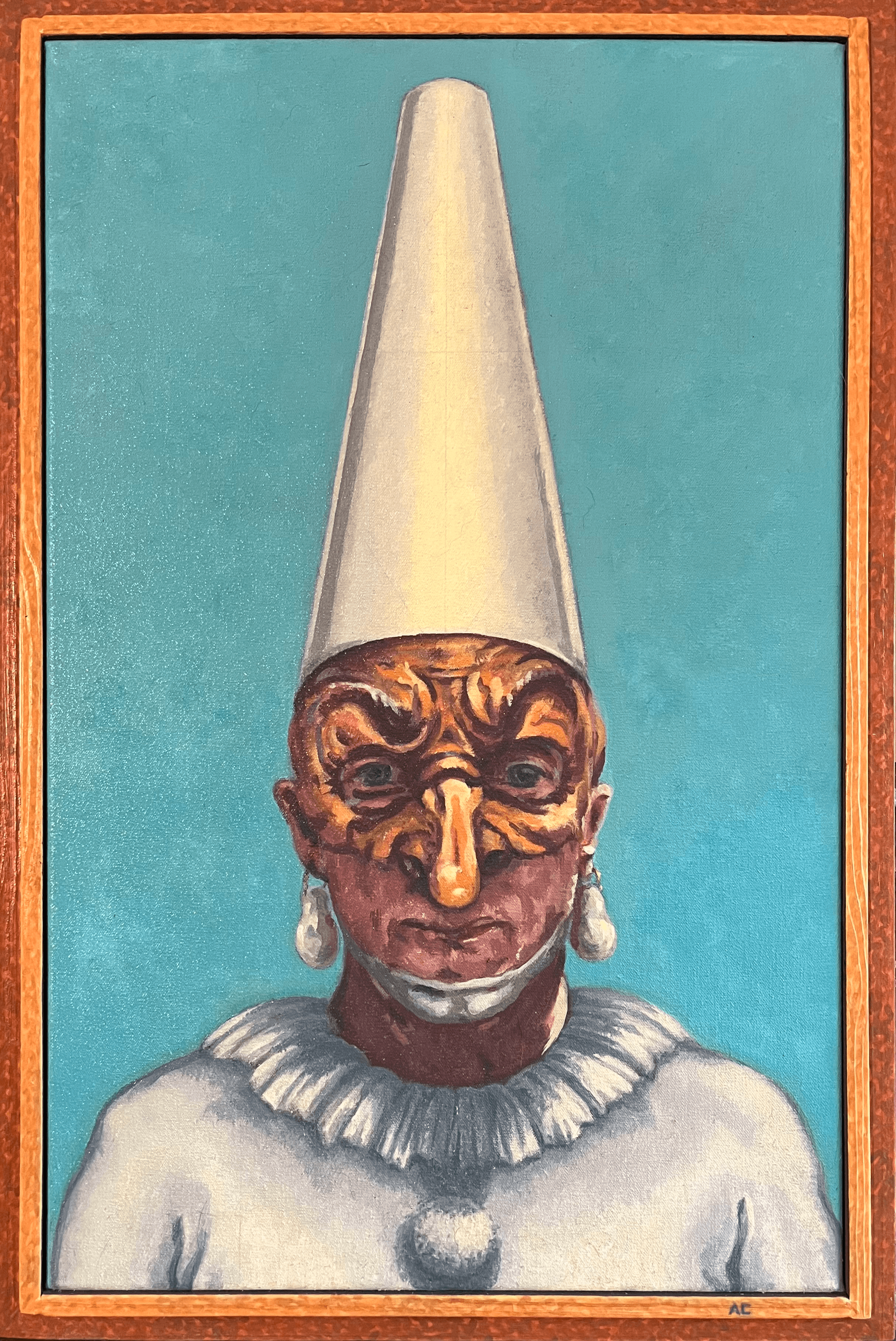
Is there mission driving your creative journey?
My father once asked me: ‘Let me get this straight- you’re trying to save the world, aren’t you?’ I told him ‘Yes. An artist tries to influence the people they know. Their street. If there’s a response they show in a neighborhood gallery. As they become successful, they become known in their city. So, if you have something important to communicate, your point is to influence your audience. Painting is really about love, honesty, integrity, communication- and speaking truth to power.
Contact Info:
- Website: https://www.alexclark-newnarrativepainting.com
- Instagram: alexclark573
- Facebook: Alex Clark
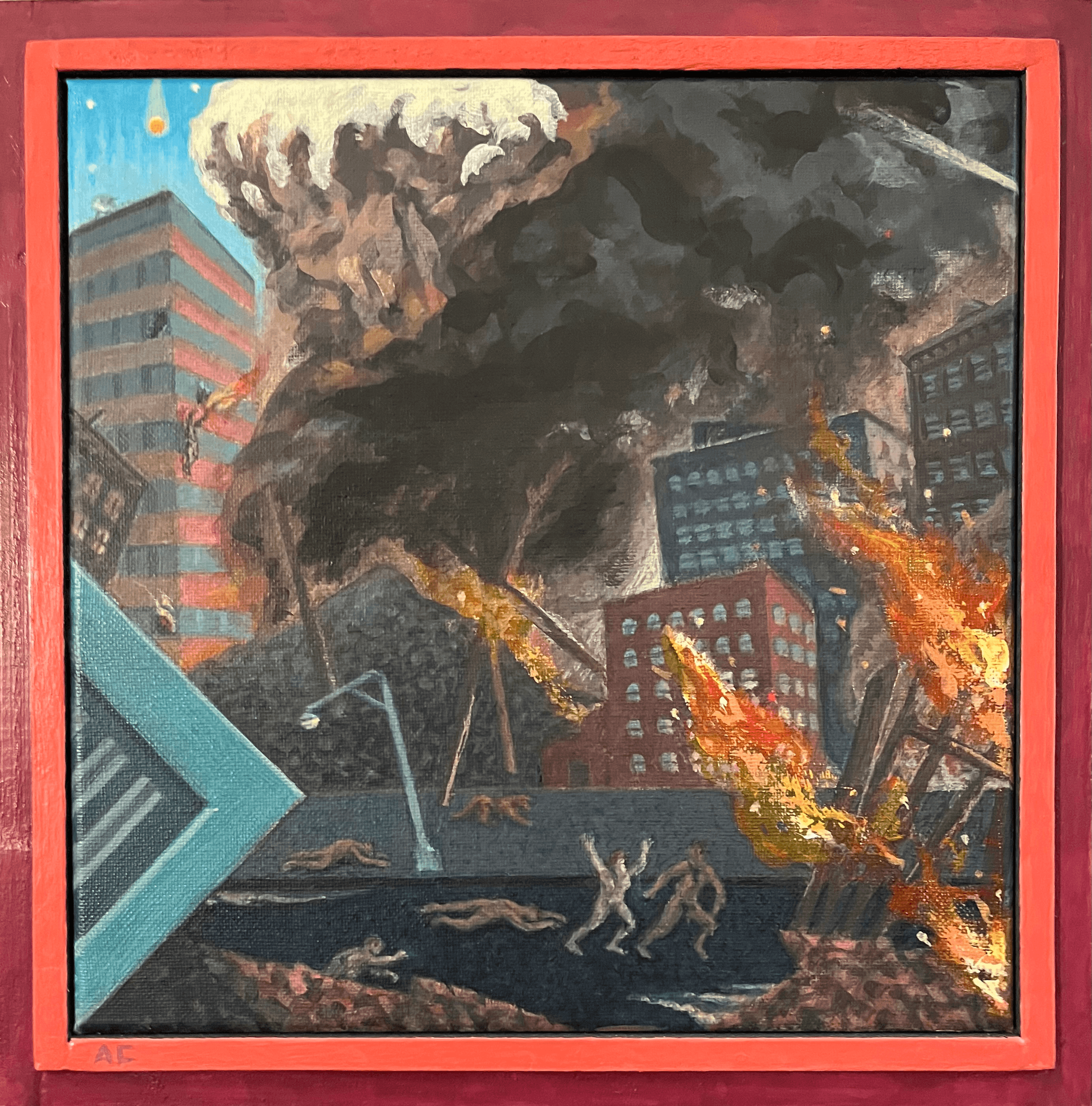
Image Credits
Alex Clark. Images shown are ‘Diogenes’, ‘The Shooter’, ‘Apocalypse’, and ‘Self-Portrait as Punchinello’.


